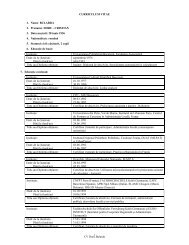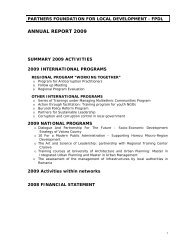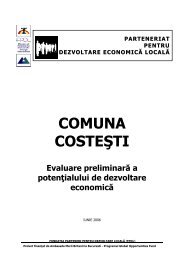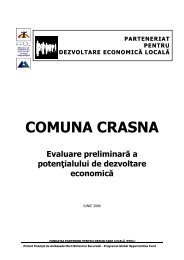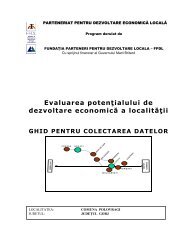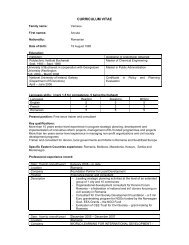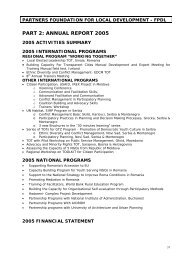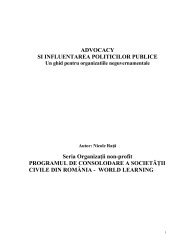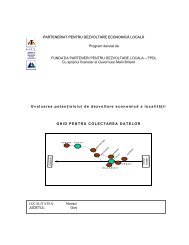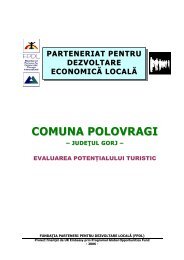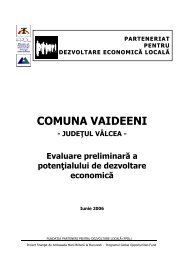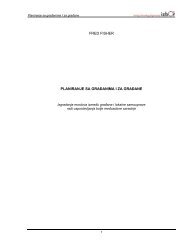Organizational Development: A Manual for Managers and ... - FPDL
Organizational Development: A Manual for Managers and ... - FPDL
Organizational Development: A Manual for Managers and ... - FPDL
Create successful ePaper yourself
Turn your PDF publications into a flip-book with our unique Google optimized e-Paper software.
One can find very different names <strong>for</strong> this kind of behaviour in academic literature, sometimes<br />
even several names in one place: “In decision-making, old behaviours that are used in new but<br />
similar situations are called policies. In the psychology of learning, these pre-<strong>for</strong>mulated actions<br />
are called habits. In social psychology they are called scripts.”(Beach, 1997) Just great! Gary Klein<br />
calls ‘the simple match, in which the situation is recognized <strong>and</strong> what has been done in the past is<br />
done again” as the “first level of the RPD (recognition-primed decision making) model” (Beach,<br />
1997). The author is definitely not in a position to further the academic discussion on the matter,<br />
so, let us call stereotype behaviour just stereotype behaviour.<br />
The set of available reactions is fixed in the memory of an organism <strong>and</strong> allows it to <strong>for</strong>m<br />
acceptable responses immediately, thus increases the chances <strong>for</strong> survival. This set depends on<br />
the experience of the organism <strong>and</strong> the size of its memory, <strong>and</strong> <strong>for</strong>m another area in the space of<br />
existence – the multitude of familiar situations <strong>for</strong> which reactions are pre-programmed by the<br />
previous history – a zone of stereotype behaviour.<br />
Stereotypic reactions are not necessarily the best ones. Nobody knows if they are the best or not,<br />
unless the organism has already tried different ways. As long as they work, stereotypic reactions<br />
create insurmountable barriers <strong>for</strong> the further search.<br />
Another disadvantage related to the stereotype reaction is that it works, even though not optimally,<br />
only if the situation is really the same. A mistake in perception is always possible. Organisms<br />
seldom recall a ‘familiar’ situation by analyzing all parameters – they just recognize one or another<br />
feature of the pattern (stimulus) <strong>and</strong> presume that the situation is ‘the same’. However, if the<br />
situation is not the same – the stereotype reaction is by no means better than a r<strong>and</strong>om search,<br />
<strong>and</strong> if it is not successful <strong>and</strong> tends to repeat over <strong>and</strong> over in the same way (which a r<strong>and</strong>om<br />
search would never do) – it may be much worse. An organism may find itself trapped by its<br />
previous experience <strong>and</strong> not able to try another way out. Then it may die.<br />
For all other situations outside of the zone of stereotypic behaviour, the r<strong>and</strong>om search ‘rules the<br />
ball’, if nothing else remains.<br />
Stereotype<br />
reactions<br />
R<strong>and</strong>om search<br />
Picture 3. Zone of stereotype reactions<br />
27



